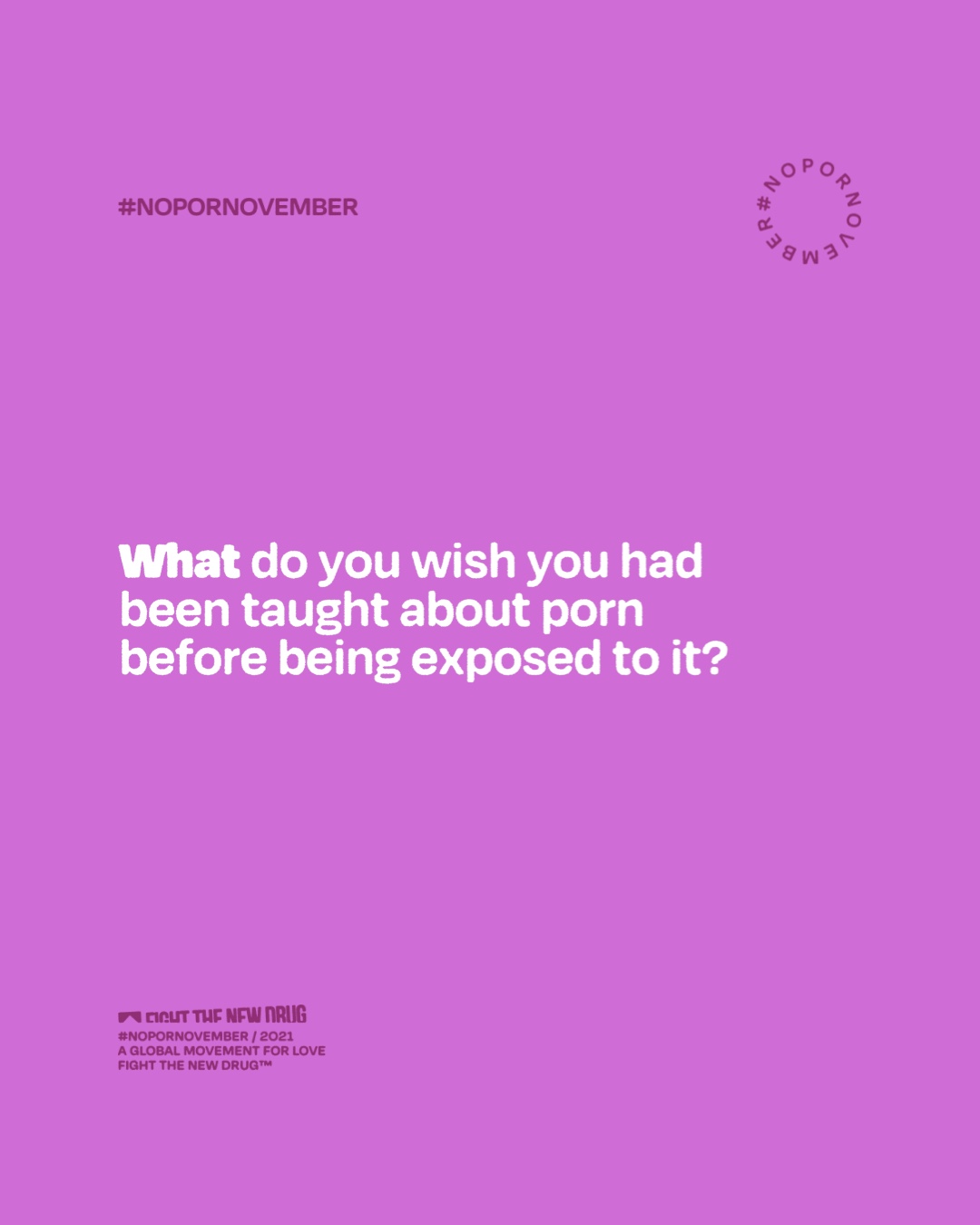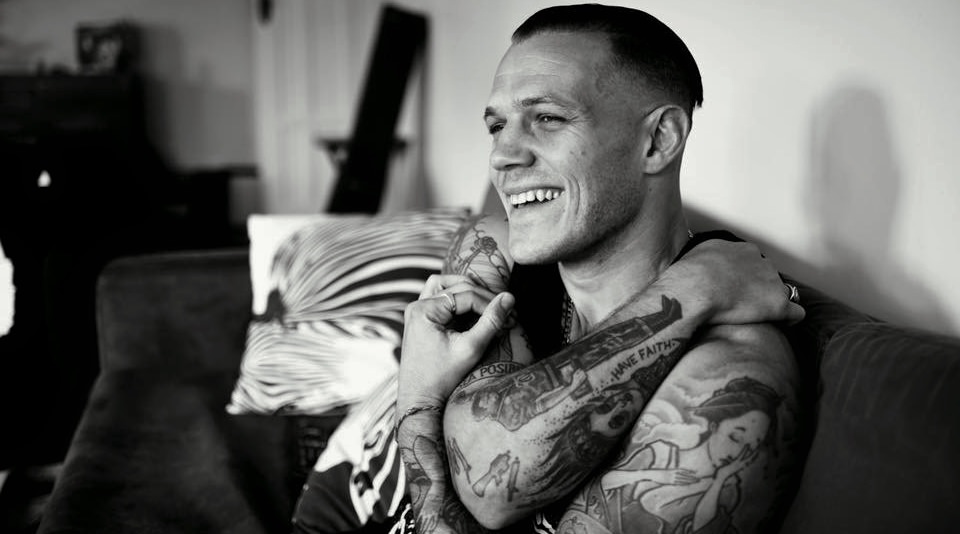Photo courtesy of Richie Hardcore. 5 minute read.
Trigger warning: Discretion advised: Language in this post may be triggering for some readers.
“Everyone is looking at it but no one’s talking about it. A lot of people still think porn is Playboy and it’s not.”
To better understand the influences of pornography in the Oceania region, we spoke to Richie Hardcore, a retired professional kickboxer and Muay Thai fighter from New Zealand. Today he splits his time between training other fighters and his work as an activist.
Currently, he sits on the board for White Ribbon NZ fighting against domestic violence and visits schools and universities to talk about stopping sexual and family violence.
Related: How Porn Can Promote Sexual Violence
Porn-fueled issues in New Zealand and Australia are very similar, and Richie said both aren’t very different from the US or Canada. In Australia, over 90% of boys and over 60% of girls have seen pornography by the time they are 16. Boys are more likely than girls to become enthusiastic and regular consumers of porn, and young teens report feeling pressured to do things their partners have seen in porn.
Richie said rape culture is where sexual violence stems from, and porn is tied in closely with the issue. Experts estimate 1 in 5 Australian women have been a victim of sexual violence, and in New Zealand 1 in 3 will report physical or sexual abuse by a partner.
View this post on Instagram
“Porn gets left out of the equation because porn is considered cool,” Richie said. “But you can’t divorce the Harvey Weinstein’s from porn.”
Growing up in a pornified world
Richie is 39-years-old, but first came in contact with porn when he was 10. He was at a friend’s house when that friend’s brother put on an explicit video.
“This was the time of VHS. I didn’t even know what it was until he put it on, and I obviously found it exciting.”
Related: Parents: If You Don’t Teach Your Kids About Sex, Porn Will
Richie’s experience isn’t unusual. The majority of kids are exposed to porn by age 13, with some exposed as young as seven, according to a 2020 survey.British Board of Film Classification. (2020). Young people, pornography & age-verification. BBFCCopy
He continued to consume porn until his early 20’s when he began questioning what he was watching. In other aspects of Richie’s life, he began making ethical consumer choices, and those changes lead him to research how performers, often women, are exploited in porn.
“My first long relationship, my partner said, ‘I feel like we are in a porn movie sometimes,’ because it was so performative. I grew up consuming hardcore porn like everyone else does and that’s what I wanted to do when I started having real-life sexual relationships. I’m still deconditioning myself from what I find sexy.”
Related: Oral Before Kissing: How Porn Culture Has Changed Teens’ First Sexual Encounters
Research is constantly showing how porn changes and shapes your sexual tastes. Richie said that when you look at something for a long, long time and live in a culture where everyone else consumes the same content, it’s difficult to find your authentic desires.
“Wouldn’t it be nice if people of all ages could figure out what they genuinely like doing with their bodies with someone that they trust? They don’t get that opportunity because there’s an increasingly violent script with deep throating and gagging. Have you ever choked on a piece of corn? That s— sucks.”
The fantasy of porn
From his experiences speaking at schools, Richie has talked to a lot of people about porn. He’s spoken to parents whose 17-year-old son has porn-induced erectile dysfunction because his real-life sexual relationships aren’t like the porn he’s grown up consuming. He’s talked to school guidance counselors about 14-year-old girls admitted to the hospital because of anal sex-related injuries.
This is common today. This is what is happening in a world that normalizes and even promotes porn as “harmless entertainment.” But not anymore, there’s a tidal wave of Fighters who are reshaping the conversation on porn, and Richie is taking the movement for awareness into his own hands.
Richie’s approach as an educator is about harm reduction by equipping young people with critical filters. He doesn’t think saying “just don’t watch porn” is effective, but instead explains how porn is a problematic fantasy.
“When I speak at schools, I say, you have to understand that’s acting. The people you are having sex with now probably don’t want to do what you’ve been watching. I ask, in pornos do you see hugging? They all laugh and say nah, nah. Do you hear people ask is that okay? Can I do this? Is there a kind conversation during the sex in pornos? And then I see kids stop and reflect.”
He said, “We need to teach our kids that porn is not reality, and you don’t have to do what you see in it. What turns you on in the bedroom isn’t necessarily what your girlfriend wants to do. It’s just what you’ve been watching for your whole life.”
A culture of sexual entitlement
“When I speak to schools, I say, were you guys any good at grammar? Not me, I was a pretty s*** student at school. But this is what I know: the subject is the person of the action, the verb is the thing you want to do, and the object is the thing you want to do it to. We objectify and dehumanize people in pornography, and when we do that, we dehumanize ourselves.”
Related: Is There A Connection Between Porn Culture And Rape Culture?
To enjoy pornography, you have to turn off your empathy, according to Richie—he said he knows this because he did it for years. What changed was when he started wondering what the woman in certain scenes felt:
Did that really feel physically nice for her? How will she feel after the film finishes? When she goes home and someone asks her how her day was, and she thinks about how she had aggressive and scripted sex with eight men and they called her names for hours, what does that do to a person? What does it do to the millions of people watching?
According to Richie, it’s created a culture of sexual entitlement. Men send unsolicited “dick pics” and bypass consent. Where do these ideas come from?
“In porn, sex ends when a man finishes on a woman’s face. That’s not how sex is. Dudes need to understand how to pleasure their girlfriend and be kind. There’s no reciprocity in porn. It’s dudes taking things from a woman. It’s transactional.”
To listen to Richie’s podcast interview with Consider Before Consuming, see below or click here.
Building respectful relationships
The last few years, Richie has spoken to thousands of people about sex and relationships and the part pornography plays in that conversation.
But it’s a backward battle. Australian and New Zealand culture expect boys to be respectful, and yet the internet is theirs to explore without the context of pornography’s effects.
Consider this: as few as 1 in 3 and as many as 9 in 10 porn videos depict sexual violence or aggression. Richie said there’s no kindness in porn, and that’s why he talks about it.
Related: 3 Ways You Can Help Recover Your Porn-Obsessed Brain
“We aren’t going to get rid of pornography, are we? I have to be a realist about it. But 12-year-olds shouldn’t be looking at gang bangs. They shouldn’t look at a woman with mascara streaming down her face, men pulling her hair, calling her a b—, and pleasuring themselves to that. I’m sorry for the language, but that’s where boys are getting their ideas from,” he said.
“I get upset when I talk about this, because I know I’ll get a message in my inbox from some girl telling me how she was raped. You can’t divorce this from porn… I just want people to be kind to one another. I want young people to understand that humans aren’t commodities, but we treat them like that. Let’s make a world where people don’t have to undo that damage.”
We’re with you, Richie. Keep fighting, and keep spreading the word that porn isn’t harmless. Love and healthy relationships are absolutely worth fighting for.
Fight the New Drug collaborates with a variety of qualified organizations and individuals with varying personal beliefs, affiliations, and political persuasions. As FTND is a non-religious and non-legislative organization, the personal beliefs, affiliations, and persuasions of any of our team members or of those we collaborate with do not reflect or impact the mission of Fight the New Drug.

Your Support Matters Now More Than Ever
Most kids today are exposed to porn by the age of 12. By the time they’re teenagers, 75% of boys and 70% of girls have already viewed itRobb, M.B., & Mann, S. (2023). Teens and pornography. San Francisco, CA: Common Sense.Copy —often before they’ve had a single healthy conversation about it.
Even more concerning: over half of boys and nearly 40% of girls believe porn is a realistic depiction of sexMartellozzo, E., Monaghan, A., Adler, J. R., Davidson, J., Leyva, R., & Horvath, M. A. H. (2016). “I wasn’t sure it was normal to watch it”: A quantitative and qualitative examination of the impact of online pornography on the values, attitudes, beliefs and behaviours of children and young people. Middlesex University, NSPCC, & Office of the Children’s Commissioner.Copy . And among teens who have seen porn, more than 79% of teens use it to learn how to have sexRobb, M.B., & Mann, S. (2023). Teens and pornography. San Francisco, CA: Common Sense.Copy . That means millions of young people are getting sex ed from violent, degrading content, which becomes their baseline understanding of intimacy. Out of the most popular porn, 33%-88% of videos contain physical aggression and nonconsensual violence-related themesFritz, N., Malic, V., Paul, B., & Zhou, Y. (2020). A descriptive analysis of the types, targets, and relative frequency of aggression in mainstream pornography. Archives of Sexual Behavior, 49(8), 3041-3053. doi:10.1007/s10508-020-01773-0Copy Bridges et al., 2010, “Aggression and Sexual Behavior in Best-Selling Pornography Videos: A Content Analysis,” Violence Against Women.Copy .
From increasing rates of loneliness, depression, and self-doubt, to distorted views of sex, reduced relationship satisfaction, and riskier sexual behavior among teens, porn is impacting individuals, relationships, and society worldwideFight the New Drug. (2024, May). Get the Facts (Series of web articles). Fight the New Drug.Copy .
This is why Fight the New Drug exists—but we can’t do it without you.
Your donation directly fuels the creation of new educational resources, including our awareness-raising videos, podcasts, research-driven articles, engaging school presentations, and digital tools that reach youth where they are: online and in school. It equips individuals, parents, educators, and youth with trustworthy resources to start the conversation.
Will you join us? We’re grateful for whatever you can give—but a recurring donation makes the biggest difference. Every dollar directly supports our vital work, and every individual we reach decreases sexual exploitation. Let’s fight for real love:





